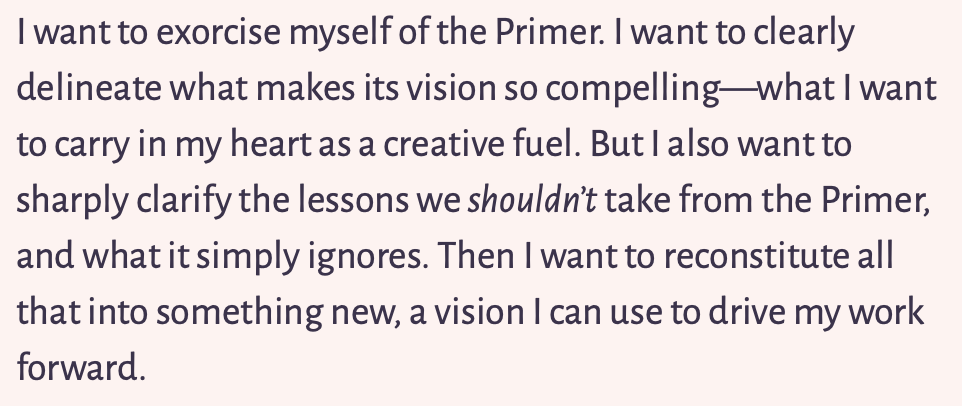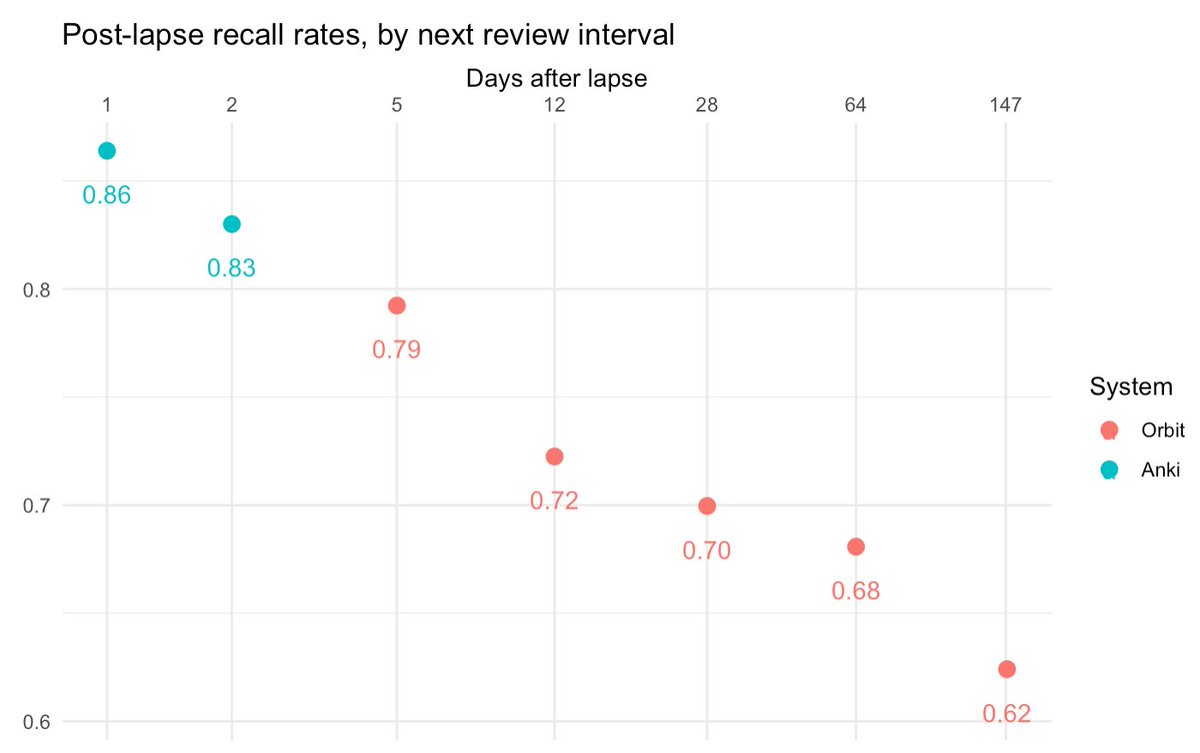
More wonder, more insight, more expression, more joy!
Independent researcher; currently exploring tools that augment human memory and attention.
31 subscribers
How to get URL link on X (Twitter) App


 The main problem is that existing ultra-bright lights aren't great for home use. Options include:
The main problem is that existing ultra-bright lights aren't great for home use. Options include:







 It’s really remarkable how much well facilitated discussion improves my understanding. Well-facilitated conversation would often show me quite forcibly how shallowly I’d grasped the text. Others’ understandings were almost always different in interesting and enriching ways.
It’s really remarkable how much well facilitated discussion improves my understanding. Well-facilitated conversation would often show me quite forcibly how shallowly I’d grasped the text. Others’ understandings were almost always different in interesting and enriching ways.



 Assuming we want to maintain a retrievability of 85-90%, 1 day really is the appropriate next interval (in aggregate).
Assuming we want to maintain a retrievability of 85-90%, 1 day really is the appropriate next interval (in aggregate).

 The schtick: after studying the material, the subject is intro'd to a fellow student (confederate!). They play Operation while "waiting their turn"…then the "lesson" occurs—in VR. One condition's told they're teaching the peer they met; the other believes they're teaching a bot.
The schtick: after studying the material, the subject is intro'd to a fellow student (confederate!). They play Operation while "waiting their turn"…then the "lesson" occurs—in VR. One condition's told they're teaching the peer they met; the other believes they're teaching a bot.

 Maybe one high-order bit is relating to internal pace like riding a multi-gear bike. You have many gears; you're always choosing the one that feels best for the current terrain.
Maybe one high-order bit is relating to internal pace like riding a multi-gear bike. You have many gears; you're always choosing the one that feels best for the current terrain.

 A huge part of the book covers challenges of accessing research materials, library privileges, journal subscriptions, etc. I’ve been doing some lit reviews this week. Without leaving my chair, without affiliation, I’ve accessed ~100 papers from ~30 journals across 5 decades.
A huge part of the book covers challenges of accessing research materials, library privileges, journal subscriptions, etc. I’ve been doing some lit reviews this week. Without leaving my chair, without affiliation, I’ve accessed ~100 papers from ~30 journals across 5 decades.
https://twitter.com/andy_matuschak/status/1526457638296473601?s=20&t=3xguiExr5wAxddWKBnKCeQ(Of course, a normal conference could achieve this, too, but the constraint of walking enforces a small group size and conversation over presentation)

